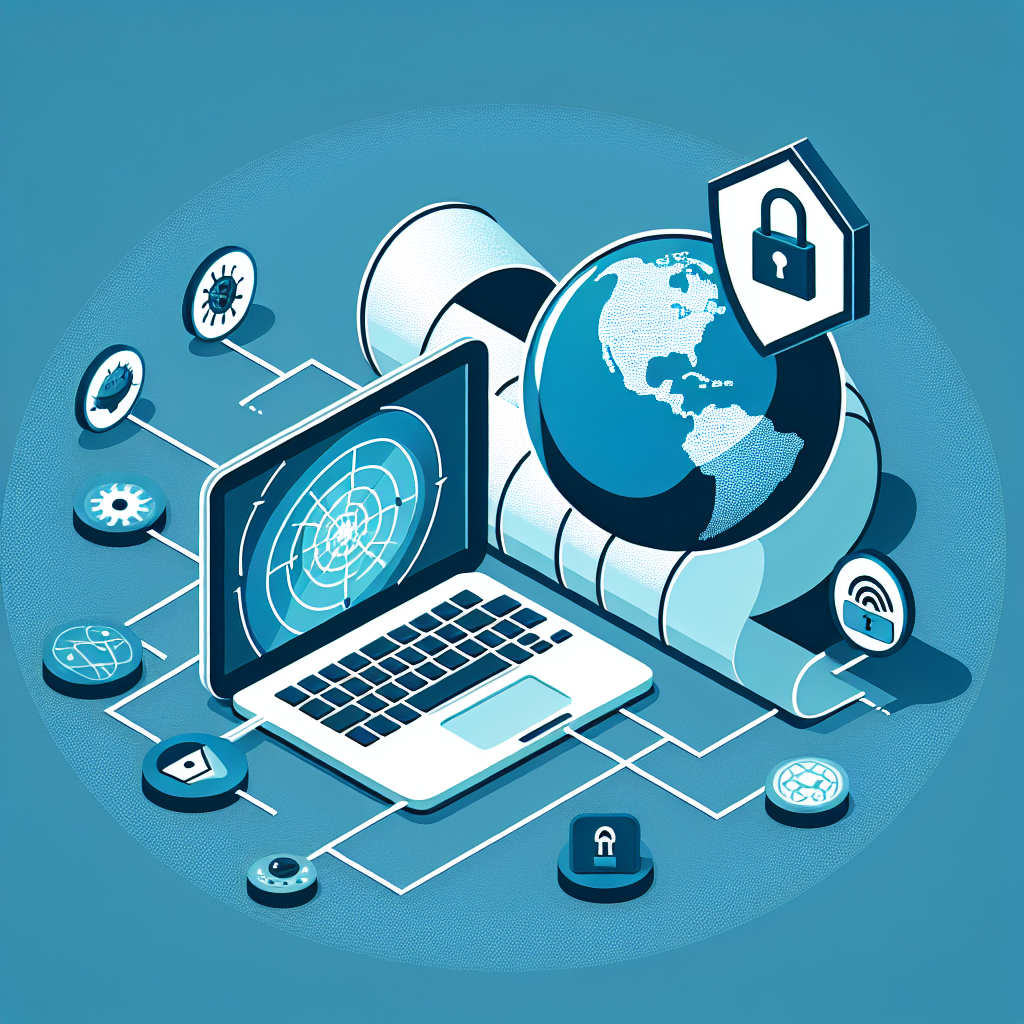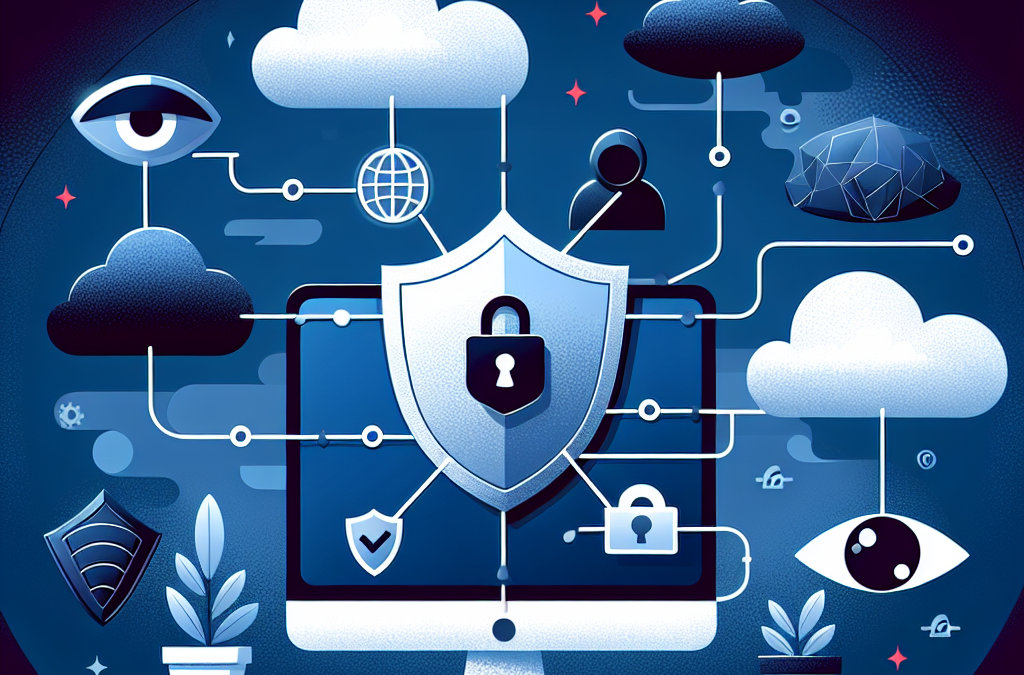Safeguarding Data on Public Wi-Fi Networks
Why You Should Be Using VPN Whenever You Access the WWW
In today’s digital age, the internet is a vast playground as well as a battlefield, where data security is more crucial than ever. Whether you’re checking emails at a cafe or scrolling through social media at the airport, your personal information could be at risk. This is where a Virtual Private Network (VPN) becomes your best ally, ensuring that your online activities are shielded from prying eyes, especially on public Wi-Fi networks.
Public Wi-Fi networks, while convenient, are notoriously insecure. They often lack strong encryption, making it easy for cybercriminals to intercept data that passes through the network. Imagine sending a letter through the mail with no envelope; that’s essentially what using public Wi-Fi without a VPN is like. Your data, from passwords to personal messages, can be easily accessed by anyone with a little technical know-how.
However, when you use a VPN, your internet connection is encrypted. This means that even if someone manages to intercept your data, all they would see is a jumble of characters, virtually impossible to decipher. It’s like sending your letter in a locked safe. This encryption helps protect your privacy and secures your data against potential cyber threats.
Moreover, a VPN allows you to browse the web anonymously. It masks your IP address, making it appear as though you’re accessing the internet from a different location. This not only helps in maintaining your privacy but also allows you to bypass geo-restrictions. For instance, you can access content from streaming services that may be unavailable in your country, all while your online identity remains hidden from view.
The benefits of using a VPN extend beyond just security and privacy. It also plays a crucial role in safeguarding your digital footprint. Each time you visit a website, you leave behind traces that can be used to track your online behavior. By using a VPN, you minimize the amount of personal data that websites and third parties can collect about you. This is particularly important in an era where data has become a commodity, and your browsing habits can be sold to advertisers or worse.
Furthermore, using a VPN can improve your internet connection’s performance in some cases. ISPs often throttle bandwidth based on your activity, but a VPN can help avoid that by hiding what you’re doing online. This means smoother streaming and faster downloads, which is a delightful bonus on top of the security benefits.
In conclusion, the importance of using a VPN in today’s internet landscape cannot be overstated. It’s an essential tool for anyone looking to protect their privacy, secure their data, and enjoy a freer, more open internet experience. Whether you’re a frequent traveler, a remote worker, or just an everyday user, incorporating a VPN into your digital routine can provide peace of mind and a much safer browsing experience. So next time you connect to the internet, remember that a VPN isn’t just an option; it’s a necessity for maintaining your digital security and privacy.
Bypassing Geo-Restrictions and Censorship

Why You Should Be Using VPN Whenever You Access the WWW
In today’s digital age, accessing the World Wide Web has become a daily routine for most of us, whether it’s for checking emails, streaming videos, or connecting on social media. However, not everyone realizes that their online experience can be significantly enhanced by using a Virtual Private Network, or VPN. This tool is not just for tech enthusiasts or security experts but is a valuable asset for anyone looking to navigate the internet with greater freedom and safety.
One of the most compelling reasons to use a VPN is its ability to bypass geo-restrictions and censorship. Imagine you’re traveling abroad and want to catch up on your favorite TV shows from back home, but you find out they’re not available in your current location. This is where a VPN shines, as it allows you to connect to a server in a different country, effectively changing your IP address and making it appear as though you are browsing from there. Suddenly, those geo-restricted shows become accessible, and your travel downtime is a lot more enjoyable.
Moreover, VPNs play a crucial role in circumventing censorship. In some countries, access to information can be severely restricted by government regulations, blocking access to certain websites and services. By using a VPN, citizens and travelers in these countries can regain their digital freedom. This tool enables them to connect to a server in a country with free internet access, bypassing government censorship and allowing them to browse the web as if they were in a different part of the world.
Transitioning smoothly from entertainment to serious matters, it’s important to consider the broader implications of using a VPN. Beyond just accessing a wider range of content, VPNs help promote freedom of information and protect the right to privacy. In environments where surveillance is prevalent, a VPN encrypts your internet traffic, which prevents it from being intercepted by third parties. This encryption ensures that sensitive information such as your location, personal data, and browsing history remains private and secure.
Furthermore, the use of a VPN contributes to a more open and inclusive internet. By allowing users to bypass restrictions and censorship, VPNs ensure that everyone has equal access to information and resources online. This is particularly crucial in today’s globalized world, where access to information is often taken for granted, yet remains a challenge in many parts of the globe.
Lastly, it’s worth mentioning that while VPNs offer numerous benefits, they should be chosen carefully. Not all VPN services are created equal, and it’s essential to select one that maintains a strict no-logs policy and uses strong encryption standards. This ensures that your data is not only protected from external threats but also from the VPN service itself.
In conclusion, using a VPN whenever you access the World Wide Web is more than just a security measure; it’s a gateway to a freer, more open internet experience. Whether you’re looking to stream content from around the globe, protect your personal information, or overcome censorship, a VPN provides the tools necessary to navigate the digital world with confidence and ease. So next time you go online, consider using a VPN and experience the internet without borders.
Enhancing Online Privacy and Security
In today’s digital age, where much of our personal and professional lives are conducted online, the importance of maintaining privacy and security cannot be overstated. One of the most effective tools at your disposal to safeguard your online activities is a Virtual Private Network, or VPN. This technology is not just for tech enthusiasts or corporate users; it’s a critical resource for anyone who uses the internet.
A VPN essentially creates a secure and encrypted tunnel between your device and the internet. This means that all the data you send and receive is encrypted, making it unreadable to anyone who might intercept it. This is particularly important when you’re using public Wi-Fi networks, such as those in coffee shops, airports, or hotels, where the security measures are often inadequate and your sensitive information could be exposed to cybercriminals.
Moreover, a VPN masks your IP address, which is the unique number assigned to your device that can reveal your geographical location to websites and online services. By hiding your IP address, VPNs allow you to browse the internet anonymously, helping protect your personal information from advertisers, websites, and even your Internet Service Provider (ISP). This anonymity is especially valuable in today’s era of targeted advertising and tracking by various corporations and governments.
Another compelling reason to use a VPN is to bypass geo-restrictions and censorship. Whether you’re traveling abroad and want to access content from your home country or you’re in a location with restricted internet access, a VPN can help you access the websites and services you need. By connecting to a server in a different country, you can browse the internet as if you were located there, enabling you to access a broader range of content and services.
Furthermore, using a VPN can improve your internet experience by potentially increasing connection speeds. ISPs sometimes throttle bandwidth based on your activities, such as streaming or downloading large files. Since a VPN encrypts your data traffic, your ISP cannot see what you’re doing online, which means they’re less likely to throttle your connection based on your activity.
Despite these benefits, some might worry about the complexity of using a VPN, but modern VPN services are user-friendly. With just a few clicks, you can connect to a VPN server, and many providers offer apps for a variety of devices, including smartphones, tablets, and laptops. This ease of use means that you don’t need to be a tech expert to enhance your online privacy and security.
In conclusion, in an era where cyber threats are becoming more sophisticated and frequent, the importance of using a VPN cannot be understated. Whether it’s protecting your sensitive data from prying eyes, maintaining your privacy online, bypassing censorship, or simply ensuring a smoother internet experience, a VPN is an invaluable tool. So next time you connect to the internet, remember that a VPN isn’t just an option; it’s a necessity for maintaining your digital freedom and security. Embrace this technology and enjoy a safer, more open internet experience.
Discover more from Rune Slettebakken
Subscribe to get the latest posts sent to your email.


